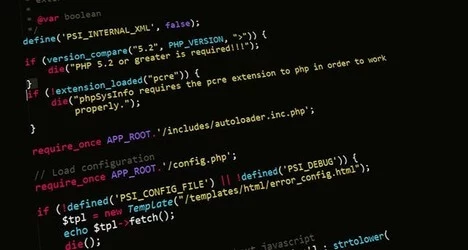
This is a transcript of the HRchat Podcast about the influence of generative AI in HR, which is part of a media partnership between HRchat Podcast and HR Exchange Network.
Bill Banham: Thanks for tuning in to another episode of the HRchat Podcast, where we dive deep into the latest trends shaping the future of work. Hey, this is Bill Banham, your host today in this HRchat episode as we attempt to shed light on a topic that's been on everyone's minds: the rise of artificial intelligence in Human Resources. Listen as we ask, “What does the rise of generative AI mean for the HR profession?”
Ever since it launched last November, ChatGPT has been making waves globally, and the HR community is no exception, of course. As AI continues to evolve, it has the potential to revolutionize the ways we approach repetitive and mundane tasks in areas like recruitment and onboarding. What about concerns with job security? And how can we harness the benefits of AI while navigating the inevitable challenges that lie ahead? To help us explore these questions and a whole bunch more today, I'm thrilled to welcome Prerna Ajmera, the General Manager of HR Digital Strategy and Innovation at none other than Microsoft. She currently leads Microsoft's HR innovation team delving into cutting edge technologies, such as generative AI and its application across the business world. She's also a speaker at the HR Tech North America online conference happening in late June 2023.
Prerna Ajmera: Hey, glad to be here.
Bill Banham: Well, it's my pleasure to host you. I'm glad that you found some time to join us today. Your session at the upcoming event looks awesome. We're going to talk about that. But before we get into all of that, why don't you start by taking a minute or so, and telling our listeners a bit more about yourself and your work over at Microsoft?
Prerna Ajmera: Thanks, Bill. And greetings to the listeners here. Glad to be talking to you about this very key topic, which has been keeping us all up at night. What will work look like? So I am Prerna Ajmera, a mother, a global citizen, and architect by qualifications, which means I've been schooled to think about things that can both be beautiful, as well as be practically applicable. I’ve spent 17 years at Microsoft, and I have had the privilege of working in various domains here throughout my career, which brings me to today, where I get the pleasure of leading the strategy and innovation for Microsoft. I am able to work with the tech visionaries at Microsoft and also join forces with partners across the industry really helping shape what the future looks like.
Bill Banham: Wonderful, thank you very much. So what inspired you to pursue a career in HR tech? And how did you get started?
Prerna Ajmera: My career has been quite non-conventional. I am not schooled in HR. Like I said, I've been an architect by qualifications. I've done rich media animation, video learning, and then moved into software development and then moved to Microsoft in the product development team. And a decade ago, the opportunity came up and I was just looking for another role at Microsoft. I saw this opening in the global compensation and benefits team.
I did an informational [meeting] with the manager. And I said, ‘That sounds really fascinating. What would it look like for people to decide how should the compensation and benefits work?’ I was just there to learn and she said, “I really love what you bring to the table. You have had strong project management experience. You have been techie at heart. I can see that you can go anywhere, learn anything, and just do wonders. So, just come join us in HR.’ I was like, ‘You’ve got to be kidding me here. I know nothing about HR.’ And she was like, ‘No, no, no, I can totally feel the strength that you're bringing to the table. We have enough people here within HR who can who can benefit from it.’ And I took a plunge and there is no going back.
I have loved it ever since then. I ran the initial few projects during which we built our homegrown solutions. So, we really did our performance and rewards tool. I've since led a lot of other transformation initiatives at Microsoft, big complex ones, including our SAP SuccessFactors implementation. Now, I get to really bring the best of the both worlds together - the HR and the people aspects with the technology and how to maximize with my own product gurus sitting across the company. So, it is really a fascinating place to be, and I'm glad my manager bet on me. I've been able to leverage my skills, which in a way, at times feel very risky to take plunges like this. But the breadth of experience that I've gained over industries and over different functional domains really helps me think in a much more holistic way and step into people's shoes and make it relevant for them.
Bill Banham: Awesome, thank you very much. What work are you currently doing at Microsoft to help accelerate AI enablement? Give us a bit of an overview before we get into the weeds.
Prerna Ajmera: Come to think about this moment, this is similar or even greater than when the internet happened for all of us. And none of us would have dreamed what the world today would look like, at the cusp of when we were just coming up with it. It's a similar moment. What we're doing here is really trying to think broadly. We talk to literally every person that we can to understand what their day on the job looks like. Ask them the questions, do focus groups, and find out what would you like AI to take away from your day-to-day drudgery of work and help you do better.
On the other side of what we've been doing is looking at what the products are here to offer. And keeping a pace has been honestly very interesting, because every other day, you will find some some new capability light up. So bringing the two at confluence on what the possibilities are from a technology perspective, as well as what the desires are, from individual standpoint is what we're trying to do and really shaping it together as a community at Microsoft. We have work streams that are led by our tech teams and work streams that are led by our HR practitioners.
Then, the third aspect that we are heavily investing in is thinking about what would the new set of skills and roles evolve as? Therefore, what should our workforce planning mechanisms look like? Where do we take our existing set of people who have been doing such amazing work and [how do we] upskill them? Where do we really need new talent and new skills all together that we should be looking out in the market? Several things HR and tech are facing is what we're doing at Microsoft to help accelerate this.
Bill Banham: Along with Markus Bernhardt, you're involved with a session at the HR Tech North America conference called “What Does the Rise of Generative AI Mean for HR?” This is a question that's on a lot of people's minds right now. What are you most excited about in terms of sharing information at the event? What do you hope attendees will learn from your session?
Prerna Ajmera: Yeah, I’m excited. First of all, to learn a lot from Markus. These meetings are amazing, where we get to participate with the community, and I will go into a couple of things in the in the meeting there. First of all, really thinking about HR as such and our own talent architecture suggests that there are at least, if not more, 13 functions right within HR. So how are we thinking across all of those functions, different use cases, which will really help us do better HR and in service of the people? And then this notion of a few models that we are thinking through to maximize, so oftentimes when you think about technology, you think about automation, you have that risk of, ‘Oh my, this is gonna take my job away.’ But it is much more beautiful. It's going to help you unlock your productivity. It really gets you to a place of higher creativity and actually boosts your energy, rather than [having you] really feeling like my job's gonna be taken away here. So, I’m looking forward to sharing a lot of those use cases and these new models to think about how AI would bring a whole lot of new things to HR.
Bill Banham: Okay, well, I'm looking forward to tuning in and checking it out. Next question for you. How do you use AI to enhance employee experience and an HR professional’s capabilities over at Microsoft? Tell us a bit about that, because AI is augmenting everything. It's replacing a lot of duties and responsibilities and in the some jobs as well. What are you guys doing to get the most out of AI?
Prerna Ajmera: Employee experience is such a spoken term over the last decade or so and come to think of how our consumer experiences have become so much more beautiful from where we were to now. But from an HR industry standpoint, we are still lagging behind a lot. And many organizations that I speak to, including our own, all have hundreds of tool sets that we have taken licenses for and implemented in our program in our organizations. At times, [we’ve launched] homegrown tools as well. And what ends up happening is, while you buy these capabilities, the employees are either not aware that those benefits and things exist, or they're just so busy with their day-to-day tasks that they don't often remember to go and do something about it. So how do we take that problem of hundreds of applications, which have a lot to offer, but essentially have not been maximized and take this AI moment to do something about it? Now let's take a step back here for a moment because I'd love to go a layer deeper. When I talk about today's experiences, and I say, ‘Oh, great, I have this new benefit that I have launched, what do I do?’
Typically, I would send an email blast to all 200,000 employees in the company and say, ‘Great, this is a benefit that's available.’ And because of so much email overload or whatever format of communication you say, ‘Yeah, one other thing’ and ‘I don't want to read this’ or ‘It's not relevant for me.’ Maybe when it is applicable two years from now, in a particular situation, you’ll pay attention and you often forget. Now take a step back and reimagine this new world, where we could do hyper-personalization and targeting for what is available and out there, where if you can get that nudge just at the moment when you need it. If you filed for a leave of absence, and you're about to go into maternity leave, what would you be most attuned and looking for? Which particular communities would you like to be part of? What benefits should I think about? This not only can help you be aware of those things that are available to you, but you are so anxious in the moment, you have too many things on your mind, how do I put the person's mind at ease to say, ‘I’m here to take care of you. I am here to guide you along through the journey and you will not miss a beat.’
You’re really thinking about the individual's life stages, their needs, and surfacing information that is very relevant, nudging and pulling and drawing your attention to when the paperwork needs to be submitted. Or the manager saying ‘Yep, remember before in your one-on-one that when you're talking to so-and-so on your team? These are the things you should talk about [regarding] how does the post-leave world look like? How are we going to bring you back into the workforce and things like that?
In that moment, these kinds of AI are co pilots as they're calling it. It's not an autopilot term because it's not automating everything that you're doing, but it is enabling you to take very thoughtful actions. That's what this copilot and AI world is, and the more we know about the individuals and what they care about, the better it gets. Then, it really is your is your assistant, who's constantly there for you. And that's how we're thinking about making these experiences better. The great news is we're not just doing this for Microsoft employees alone. We are influencing the product and the industry to bring this to life, so everybody on the planet and every enterprise on the planet can really reap these benefits.
Bill Banham: Thank you very much. We've just have a couple of minutes left here today. So, I'm going to challenge you for the next couple of questions to answer in 60 seconds or less. What Bill? That’s not fair. I have so much to say? I know. What are some of those benefits and risks of AI - because people are concerned - and in HR technology? And how does one balance them?
Prerna Ajmera: Yeah, 60 seconds. Okay. The benefits are that it can really get you answers very quickly. And the risk is that it could do filtering in case of recruiting for candidates. If you're asking for it to give you a set of people who are going to be very likely to be successful in this particular role. If the data has been trained on looking at a certain pedigree of people from a certain college or from certain ethnicity and stuff, then you get a bias set of results back. So, how do you go ahead and remove that bias is one important thing to be very mindful of in application. We have a whole lot of responsible AI work that we're doing and publishing externally at Microsoft as well. If you're interested in really looking at how to eliminate those risks in your organization, please read on.
Bill Banham: Next question in 60 seconds or less, what would you say to HR pros, and other employees, of course, who are concerned that AI will replace their roles in the coming years? If you met somebody in an elevator, and they said, ‘Please tell me that we've still got jobs in five years time, what do you say to those folks?’
Prerna Ajmera: What AI will do and this is my personal belief, as I'm kind of seeing it play out is that it's going to actually unleash your creativity even more. It will help you take away the tasks, which will help preserve your energy. You're going to next work on something that will boost your energy. And instead of thinking about a whole lot of tasks, which are going to eliminate you, actually think about ways in which this can accelerate the time spent. And I've been talking to my son who's in college, who's similarly worried as well. And the one thing that I say is, ‘If you're one of those lazy people who are going to not make AI work for you, then yes, you will not get the max out of it. But on the other hand, if you're being very creative, and put AI to work in service of you, it can actually make you better.’
Bill Banham: How can we connect with you? How can folks learn more and connect with you? Is that through your email address? Do you want to share your LinkedIn details, maybe you're super cool, and you're all over TikTok and places.
Prerna Ajmera: The best way to connect with me would be LinkedIn. And I try to be very diligent in terms of responding to bids, but then also, I end up sharing a whole lot on LinkedIn as well. So that would be a great way to stay in touch.
Bill Banham: Perfect. Well, that just leads me to say, Prerna, you know you’re and you're awesome. I'd love to do this again with you. But for now, thank you very much for being my guest on this episode of the HR chat show.
Prerna Ajmera: Thank you. It's been a pleasure, Bill, and looking forward to spending some more time with you.
Bill Banham is the Host of the HRchat Podcast and the Editor of the HR Gazette. You can reach him on LinkedIn, and you can listen to his other podcasts.
Don't miss your chance to hear Prerna Ajmera’s conversation at HR Tech North America 2023. It's free to join. You’ll have the chance to share your thoughts, ideas, and questions with her and Markus Bernhardt.
Join the global human resources online community

Join HR Exchange Network today and interact with a vibrant network of professionals, keeping up to date with the industry by accessing our wealth of articles, videos, live conferences and more.
Join Now



















